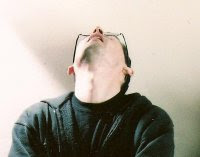
[Before I go any farther: My enjoyment of this movie was severely hampered by the marketing team at Weinstein/MGM, who made sure to stick every special effects shot into the trailer and capped it off with a stupid ending (the little girl growling like Mercedes McCambridge, "don't you love me, Daddy?") which seemed to spoil the whole movie. Curses to these marketers for their insistence on the lazy hard sell.]
Anyway, it's been a while since there's been a full-fledged Stephen King movie out there - and in particular, the purest form of Stephen King movie, in which a cynical middle-class white guy, usually a writer and usually estranged from his family, is subjected to bizarre and frightening occurrences beyond his comprehension (The Shining, Pet Sematary, The Dark Half, etc.) This time it's John Cusack as the cynical writer who explores haunted bed & breakfasts, although it's not clear what exactly his writings consist of - the movie can't seem to decide if he's a tour guide or a debunker.
Cusack travels to a big luxury hotel in New York, where Samuel L. Jackson, in a nice scene loaded with foreshadowing, tries to warn him away. Sorry, too cynical! Cusack replies, and he's off to the haunted room 1408. For most of the remainder of the movie, director Mikael Hafstrom pulls out every trick in his arsenal to freak the fuck out of Cusack and us.
While the movie is enjoyable as a summer horror-movie thrill ride, it falls a little short in its sub-Shirley Jackson efforts at serious drama, to get Cusack to come to terms with his family crises through spookery. Hafstrom's attempts at psychology are convincing, thanks to Cusack's inherent likability, but a little shallow.
What I do take away from most strongly in the movie is the idea that Cusack's Mike Enslin is being punished not for his failings as a father or husband, but rather because of his success as a professional cynic. People are attracted to the idea of ghosts and hauntings because they suggest the possibility of an afterlife, as the movie tells us; Enslin's cynicism goes punished as a symptom of his closed-mindedness. The final scene of the movie, in which Enslin shares the impossible tape-recording of his ghostly daughter with his wife, illustrates this awakening - but Cusack's face does not register enlightenment, but existential dread, the knowledge that there is something out there - and it's pissed.


No comments:
Post a Comment